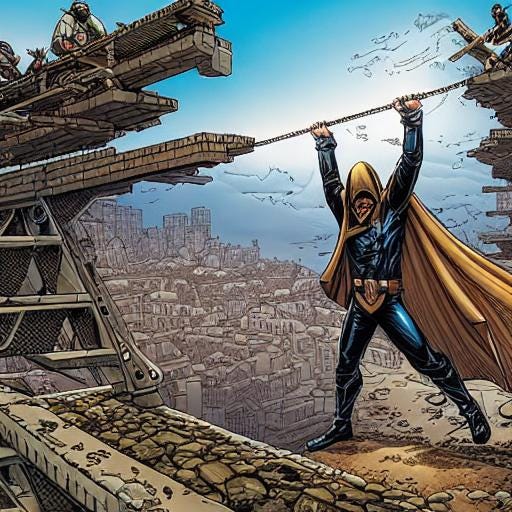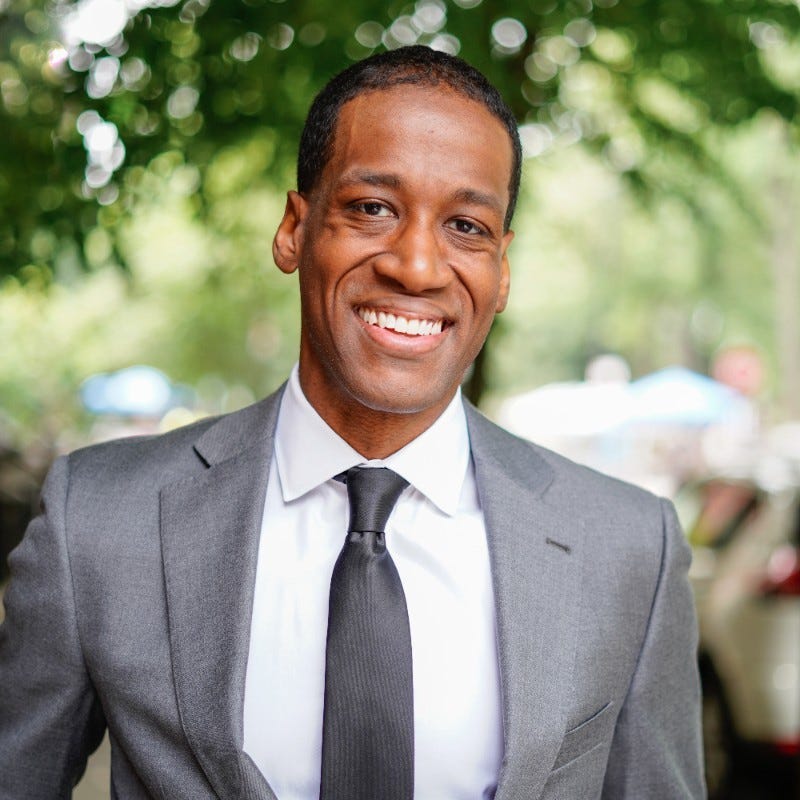“Can we finally do this?” That’s the first thought I had when I heard the idea of building a group of intersectional professionals - people with proximity to their work that comes from lived experience. Could we achieve the goals of building community, creating sustainability in our sector, and designing a roadmap for system-level change? And could we do that in a way that elevates the expertise that only lived experience can teach?
I work in philanthropy at the junction of private and public capital, and every day my goal is to assist organizations who are trying to remedy decades of systemic disinvestment, an almost impossible task. In that work, I encounter the same barriers I’ve seen and felt in a variety of sectors: creating access and agency to promote diversity and achieving diversity at every level of an organization, including diversity of life experiences. I feel an immense purpose and obligation to try and serve my community in the opportunity before me. Yet, the systems and apparatus built to help people like me somehow reinforce the issues of imposter syndrome and inadequacy. I shouldn’t feel underqualified to help people who are exposed to the same vulnerabilities I had growing up as a black man in a single-parent household in Brooklyn.
“The power of growing up in a system that creates barriers to your right of self-determination is that if you can survive it, you develop an unrelenting desire to do whatever it takes to try and help others find that way out.”
I don’t speak for all black people, and I surely don’t have all the answers to solving inequity, but I know the needs of the communities I’m trying to serve because I’ve lived with the problems. The power of growing up in a system that creates barriers to your right of self-determination is that if you can survive it, you develop an unrelenting desire to do whatever it takes to try and help others find that way out. Sometimes, that means a complete lack of taking care of yourself; other times, that means doing whatever you can to try and fix an unfixable system, if only to fill the hole of your survivor's guilt. No degree or work experience can give you that perspective and motivation.
I don’t mean to say that you must be proximate, or belong to a certain group, to effectively contribute to mission-driven organizations or governmental bodies. However, I find it quizzical that there is a significant absence of individuals with proximity and lived experience in those groups. I often wonder whether this stems from the obsession of being an expert in our sector. What does that mean? Do I have to have a doctorate in studying programs impacting the poor to be an expert on poverty? What if I spent a decade observing and assisting organizations serving the public good? Where do we make room for the expertise that comes from living through poverty or discrimination? The harrowing aspect of the work, besides the pain I feel in knowing what is at stake if we fail, is that I never feel like my proximity to these problems is held anywhere near the esteem of a traditional “expert,” especially when so few of those “experts” have lived in my community. They don’t know what it’s like to grow up surviving, where living feels like a luxury. And yet, somehow, their expertise is the remedy.
To be clear, I’m not suggesting a zero-sum game. I don’t want to remove everyone from the table. I’m saying it is in everyone's interest to see it as mission-critical to make more space, to get a bigger table, or maybe to have some folks leave the table because proximate experts must have a seat. We need an all-hands-on-deck mission to move the needle, and making sure organizations emphasize staff and leaders with lived experience and proximity to the problems they hope to solve is the surest first step I can imagine. This is where the network we are building comes into play.
“If we want more lived experience at the table…we also need to make sure that we are taking care of each other as we step up. That’s the aim of our network.”
When I think about the real impact a group of intersectional professionals can have, it is the support and cultivation of the generation that comes behind us. Sometimes, coming from our backgrounds, it feels like you’re walking across a rickety bridge. With every step forward, you feel like that might be the step that causes you to fall. But with each step, you’re also closer to the other side of that bridge. I hope to let others know they can move forward, no matter how unstable or impossible that next step may seem. And if you happen to fall, you can trust there will be someone there to catch you. We want to create spaces where individuals won’t be afraid to step forward and fall because they have confidence that someone will catch them. If we want more lived experience at the table, we not only need people to make room for ourselves, we also need to make sure that we are taking care of each other as we step up. That’s the aim of our network: providing what professionals with lived experience need to thrive - whether it be mentoring, a thought partner, a job referral, or just someone who gets what it feels like to think you’re not good enough and to remind you that you are.
Travis Baird is a Brooklyn native and Executive Director of Maverick Capital Foundation. Travis spent most of his career as a small business owner running start-ups before he decided to enter philanthropy. Before becoming an entrepreneur, Travis was an actor spending his time performing off-broadway in NYC and producing shows at fringe festivals across the country. His work was focused on commentary on race and society, using art as a space to challenge audiences to deal with hard conversations.
✋ Joining the Network
Since launching the Network in Summer 2023, we have gathered Intersectional Professionals from across the U.S. in-person and online. Our actively growing membership represents a wide variety of identities, experiences, and careers. Our monthly meetings are typically conducted virtually, and in-person gatherings happen occasionally in selected cities. Wherever you are, we have a way for you to join. Fill out the new member form and we’ll be in touch to get you onboarded into our community.
To learn more, contact Anthony Barrows, Managing Partner and Founder of the Center for Behavioral Design and Social Justice.






Oof, so many great points here Travis. Keep fighting that good fight and I'm excited to be standing side-by-side with you.
This is exactly why it’s so vital to have all of us everywhere. Thank you for all that you do, and for bringing your lens to the tables where you sit!